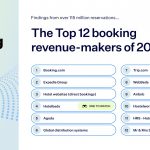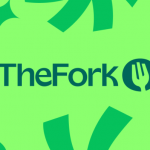Google has been teasing the end of third-party cookies since 2020, but it seems as if they’ve finally decided on a concrete plan.
NB: This is an article from Vizergy
In 2020, Google promised to remove cookies from Chrome by 2022, but was met with complaints and concerns across the board. Now, it seems as if third-party cookies will be absolutely gone from Google Chrome by the second half of 2024.
Subscribe to our weekly newsletter and stay up to date
Google Chrome is one of the most popular browsers in the world, capturing more than 60% of the total market with over 2.5 billion users. Over half of all desktops run on Chrome, so this shift means big changes for you. Here’s how this is going to impact the hospitality industry.
What are cookies?
Third-party data is how advertisers track you across the web. If you like a brand on Facebook, chances are you will start to get ads for that brand – or similar ones – on other platforms and websites. This has been a key part of advertising for hoteliers and the hospitality industry, and losing this type of data means you’ll have to shift how you think about marketing your hotel.
Google has tried a few cookie replacements – most famously with something called Google Federated Learning of Cohorts, or FLoC. It aimed to semi-anonymize users by putting them into a cohort–a group of people with similar interests. But now, FLoC is dead and has been replaced by Topics, which allows Chrome to learn more about your interests over time and show content related to those topics. If a user loves tropical vacations – they’re still seeing tropical vacations in their suggested content.
Why are they going away?
In the EU and Brazil, online privacy laws are robust and aim to protect citizens from unwanted tracking. The EU’s General Data Protection Regulation (GDPR) requires that all data collection be tracked, consent must be given, and cookie walls (i.e. forced consent) are banned. Brazil’s LGPD is closely modeled after it. Due to these massive regions imposing stricter data privacy laws, this forces major browsers like Chrome to get in line with the trends, even if every country they service doesn’t require these laws.And even with Google’s changes like FLoC and Topics, we can’t guarantee that’s what’s going to stick. As governments become more and more concerned with data privacy, you can’t bank on Google’s constant shifting to put you in the best position possible.
Why does it matter for hospitality?
The hospitality industry uniquely relies on cookies – OTAs don’t give you the much-coveted first-party data of guests who book a stay at your hotel, meaning it’s much harder to retarget those guests for another stay. First-party data (email, phone number, etc.) is what you need from your guests, but laws prevent OTAs from handing that over to you, even if they’re ultimately your customer. And since OTAs aren’t going away with cookies, you have to rethink your strategy.
Collecting data through Wi-Fi logins, sending digital receipts, front desk sign-ins, etc. is one way to ensure you have that precious first-party data. But, here at Vizergy, we also have a tool you can use to reach out to potential and previous guests without breaking any privacy laws. TargetingHub allows you to leverage your existing database to find trends in your guests and target guests similar to them.
So what now?
With Google continually pushing back and changing their own rules around banning third-party cookies, you’re not in a crazy rush to stop what you’re doing right away. But, you should start thinking about how you might have to adapt in the next year and half and prepare yourself for the fact that cookies will ultimately end, no matter how much Google might want to drag its feet.
Read more articles from Vizergy
The post Where Did All The Cookies Go? appeared first on Revenue Hub.
































